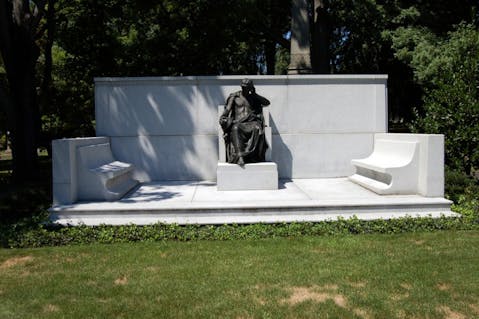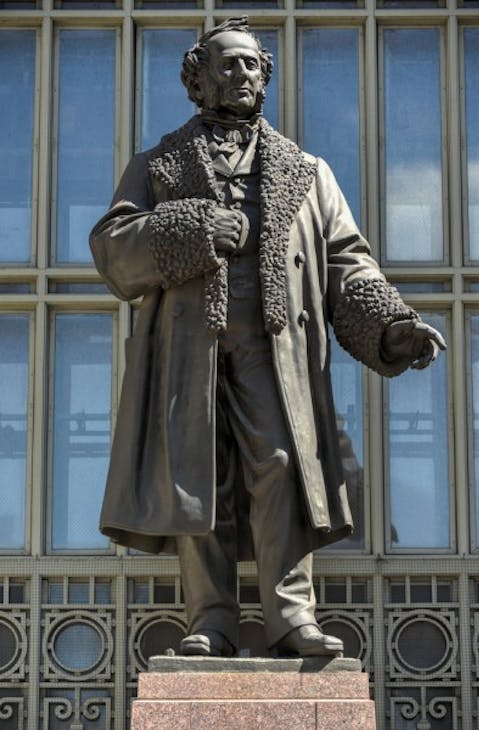A bad investment, debt, divorce or unduly spending are just some of the reasons why these 6 wealthy families who lost their fortunes became famous. So, let’s see some interesting facts about the members of the families who have become rich and about the less popular ones who managed to spend it all.

Pakhnyushchy/Shutterstock.com
It seems easy to retain the inherited fortune, but apparently it isn’t. It was also not easy to compile a list, because the fortune was sometimes lost after two, three or even six generations, so the estimated net worth of certain family changed its value over the course of years. We decided to calculate the relative value of the money in one year to another in 2015, so we can see how much money the family inherited and how much money is lost. If you want to see which are 10 wealthiest families in the world today and compare their fortune to some of the wealthiest families in American history, be free to do so. Some of our many sources which we have used to compile this list of 6 wealthy families who lost their fortunes are: Forbes, Bankrate, The Atlantic, The Huffington Post, The New York Times, Daily Mail.
Here’s our list of 6 wealthy families who lost their fortune:
6. The Kluges
$30 million, Albemarle House Drive, Kluge Estate Winery, Vineyard Estates to $0 (divorce)
John Werner Kluge (1914-2010) was a famous media entrepreneur, once one of the richest people in America. John Kluge emigrated to the states in 1922. His purchased stocks in Metropolitan Broadcasting Corporation in 1950. He was the largest stockholder by 1958, and soon became the famous creator of Metromedia, media company who owned television and radio stations in the USA. Kluge managed to make his first billion by 1984. Just five years later, he was listed by Forbes as the richest man in the world in 1989, with the total fortune of $7 billion. Metromedia Fiber Networks filed for bankruptcy protection in 2002 (the company listed assets of $7 billion and debt of $5 billion).
He was married four times and divorced for three times. His third wife was Patricia (Rose) Kluge and after divorce she received $1 million a year and 200-acre estate and thus became popular as the wealthiest divorcee in history. But Patricia has filed for bankruptcy in 2011 when The Bank of America was the top bidder for her property (355 Albemarle House Drive and 960-acre winery). The real estate billionaire Donald Trump was rumored to buy the estate vineyard for $6.2 million. It was all over the news that Donald Trump has fired Patricia Kluge, shortly after she was appointed as the adviser to Donald Trump’s son. Eric Trump stated that her role was in the operations, but the company transitioned from the property owned by the bank to the property that they own.

Shutter_M/Shutterstock.com
5. The Goulds
$77 million (1892) to $5 million
Jason „Jay“ Gould (1836-1892) was very successful railroad developer and one of the richest Americans ever. He had worked with several partners before he started his career in the railroad business in 1859. By 1863, he started working as an appointed manager of the Rensselaer and Saratoga Railroad. Five years later, Jay Gould became the president of the Erie Railroad. He was a very powerful man, involved in gold speculations in 1869, which led to the Black Friday (September 24). He lost the Erie Railroads, but started again by building the railroads in the West.
Ten years later, he managed to control 10, 000 miles of railways. Jay Gould became rich, and it was estimated that he was worth $77 million. His children inherited the fortune. Unfortunately, George, Jay’s oldest son, had to give away more than a half to the creditors, and only three generations later, his children received only $5 million.
4. The Hartfords
$500 million (1969) to $0 (2015, bankruptcy)
George Huntington Hartford II (1911-2008), heir of the A&P supermarket, inherited the fortune from his famous grandfather with the same name. His grandfather was the head of The Great Atlantic and Pacific Tea Company who revolutionized retailing. His company earned a profit by advertising and promotion. For those who couldn’t reach the company’s products, they provided tea clubs, which were very popular at that time.
Unfortunately, George Huntington Hartford II had bad investments. Half a billion dollars was his estimated fortune in 1969 by the Chicago Tribune. The grocery store chain, established by his grandfather, filed for Chapter 11 bankruptcy protection for the second time this year (first time in 2010).
3. The Pulitzers
$1.6 billion to $0 (2005)
Joseph Pulitzer was famous newspaper publisher of New York World and St. Louis Post-Dispatch. The Pulitzer Prize, named after him, was established in 1917. These prizes are given annually for achievements in journalism and photography, together with history, poetry, literature, etc. The Columbia School of Journalism was opened by his inheritance (he left the university $2 million in his testament).
Joseph Pulitzer bought the New York World from above mentioned Jay Gould in 1883 (for $340,000). He was already a wealthy man, but then he started losing money. To increase the newspaper sales, he decided to emphasize different kind of stories, sensational and scandalous. The famous Yellow Kid comic was introduced in 1895. Joseph managed to grow the circulation of his newspapers to 600,000. His biggest rival was William Randolph Hearst and their „circulation war“ was led mainly during the Spanish-American war.
Peter Pulitzer, the grandson of Joseph, had lost his grandfather’s fortune. He was married to Roxanne Pulitzer, but divorced in 1982. Roxanne and her husband Tim Boberg, helped out Peter, after his citrus grove was in danger of foreclosure. The flagship St. Louis Post-Dispatch was sold by his grandchildren. Pulitzer Inc. was sold to Lee Enterprises for $1.6 billion.

Daniel M. Silva / Shutterstock.com
2. The Vanderbilts
$5.1 billion (1887) to $0 (2015)
Cornelius Vanderbilt, one of the wealthiest Americans ever, was a business magnate, best known for building the New York Central Railroad. He purchased his first sailboat when he was only 16 and began a passenger ferry business in 1810, on Staten Island. The rise of steamboats didn’t scare Cornelius as he once again went into the new business all by himself and managed to attract former customers. He was in fact known for „stealing“ the customers from his competitors. He used the same model to invest in the railroads business and made $25 million in five years.
He died in 1882, when his son William inherited the business and doubled the fortune to $200 million. The third generation stopped growing the fortune. Sixth generation (Vanderbilt Anderson Cooper, great-great-great-grandson of Cornelius) stated last year that the family does not have a trust fund anymore. Only thirty years after Commodore’s death, the family wealth was gone.

Felix Lipov/Shutterstock.com
1. The Strohs
$9 billion (1882) to $0 (bank loans)
The Strohs is another one of 6 wealthy families who lost their fortunes. Their brewery company was founded in 1850 in Michigan. Bernhard Stroh emigrated to the United States of America and established the brewery when he was 28. Fifteen years later, he bought more land and expanded the business. It was one of the fastest growing companies in America and the Strohs became one of the wealthiest families.
His heirs, Bernhard Stroh Jr. and Julius Stroh took over the brewery after Bernhard’s death. The company was growing until they began to lose the market share. John Stroh III had to sell his labels to the Pabst Brewing Company and Miller Brewing Company in 1999. They lost billions of inheritance because of the bank loans they didn’t cover and strong competition.

Valentyn Volkov/Shutterstock.com





